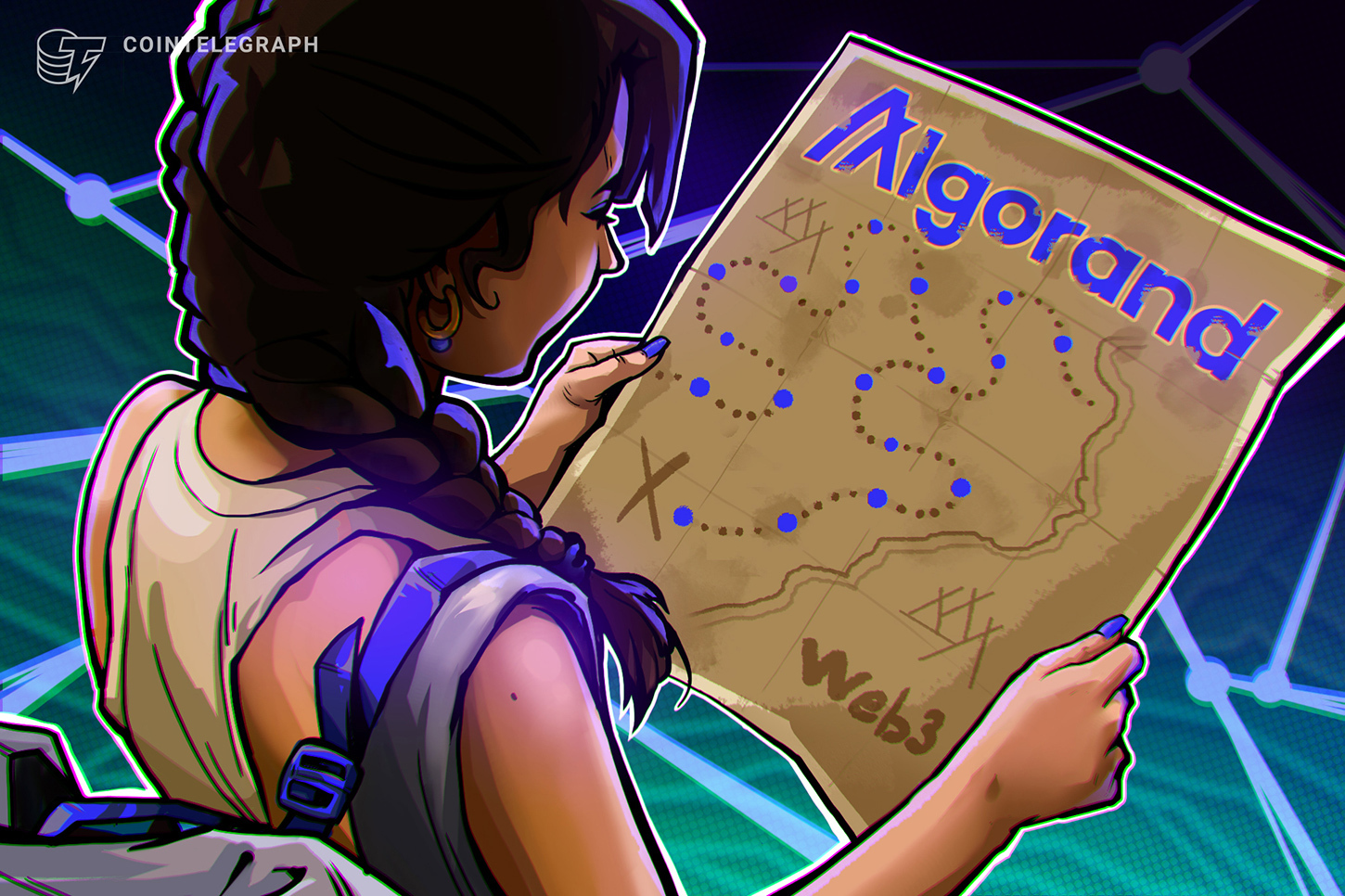Sponsored Content
Algorand’s roadmap for 2025 translates its core principles into concrete initiatives, including a community-led grant program and a user-friendly cryptocurrency wallet.
Blockchain technology was built on a set of ideals, such as decentralization, community governance and sustainability. However, the industry is not strange to projects that discard these foundational ideals for short-term gains.
Algorand, a layer-1 blockchain, remains strictly committed to these values, and its 2025 roadmap reaffirms this approach.
Community takes the wheel
In line with this commitment, the project is developing Project King Safety. With a position paper slated for release in Q4 2025, this new initiative will revamp fee structures and network incentives to ensure long-term protocol viability.
Algorand is bringing back its grant program with a revised governance structure as well. The program will be wholly governed by a community-elected xGov Council that will review proposals and provide recommendations. The xGov system will launch in Q3 this year. A proposal to enhance general governance by making it fully onchain and open-source is expected by the end of the year.
The Algorand roadmap is now out.
— Algorand Foundation (@AlgoFoundation) July 31, 2025
Let’s take a look at what this means for the future of Algorand 🧵 pic.twitter.com/w0eQTDWmgR
Algorand Foundation has also been carrying out efforts to reduce its influence in governance, such as the staking rewards program launched earlier this year. The program decreased the foundation’s percentage of total stake from 63% to 21%. To further decentralization, Algorand debuted a peer-to-peer gossip network that replaced the centralized relay node structure. As more nodes join in, the blockchain is expected to become a fully P2P network.
Eliminating barriers to adoption
Developer experience is a central focus in Algorand’s 2025 roadmap. AlgoKit 4.0, slated for early 2026, introduces composable smart contract libraries and support for Rust, Swift and Kotlin. A new key-value storage system called Schema will simplify state management. Algorand also plans to integrate with large language models, enabling developers to use AI tools as coding assistants.
For enterprises, Algorand is rolling out Intermezzo in Q3 2025 — a custodial middleware layer built on HashiCorp Vault and REST APIs. It abstracts key management and blockchain integration, allowing businesses to launch onchain services like loyalty programs with minimal complexity. Intermezzo is already powering a new initiative by WorldChess.
On the user side, the upcoming Rocca Wallet offers a reimagined interface for not-so-tech-savvy users. Rocca is a white-label wallet solution that enables DApps to create a Web2-like experience for their users. Due in preview by Q4 2025 and open-source by 2026, the wallet supports passkey logins, fee abstraction and decentralized identity.
Powering real-world use cases
Algorand is targeting four real-world use cases in 2025: tokenized financial products, agentic commerce, self-sovereign identity and data integrity. The protocol is developing smart contract-based representations for assets like debt and equity using the ACTUS framework, with a Debt Algorand Standard Assets (ASA) MVP to be released in Q4 2025.
For agentic commerce — where AI agents transact autonomously — Algorand is offering a complete developer toolkit, including X402 and A2A payment support. The Rocca Wallet will also unlock use cases related to verifiable credentials, such as WorldChess issuing a Universal Chess Passport to help players join online tournaments seamlessly.
Algorand’s 2025 roadmap includes upgrades to privacy, scalability and quantum resistance as well. To improve privacy, the network is improving its existing zero-knowledge infrastructure, AlgoPlonk, while exploring multiparty computation and fully homomorphic encryption.
You can now build apps on Algorand using zero-knowledge proofs (ZKPs), thanks to AlgoPlonk.
— Algorand Foundation (@AlgoFoundation) July 26, 2025
So if you’re building the next Tea app, you can design it to keep user data private.https://t.co/Dyp6rrZKnT
Scalability enhancements, such as parallel execution and block pipelining, are also under development. On the quantum front, Algorand is already using Falcon-based state proofs and plans to extend quantum-secure signatures to user accounts.
Committed to the core values of Web3
Algorand’s plans for 2025 reinforce the project’s longstanding commitment to security, decentralization and community-led development. These values have shaped a network with a consistent track record of uptime and scalability.
With improvements in governance, developer experience, enterprise integration and advanced cryptography, Algorand is not just scaling its technology — it’s laying the groundwork for a blockchain that supports emerging applications, reduces entry barriers and meets the demands of everyday users alike.
Find out more about Algorand.
Disclaimer. Cointelegraph does not endorse any content or product on this page. While we aim at providing you with all important information that we could obtain in this sponsored article, readers should do their own research before taking any actions related to the company and carry full responsibility for their decisions, nor can this article be considered as investment advice.
Disclaimer.This content is part of a paid partnership. The text below is a sponsored article that is not part of Cointelegraph.com editorial content. The material is written by our advertorial team and has undergone editorial review to ensure clarity and relevance, it may not reflect the views and opinions of Cointelegraph.com. Readers are encouraged to conduct their own research before taking any actions related to the company. Disclosure.


